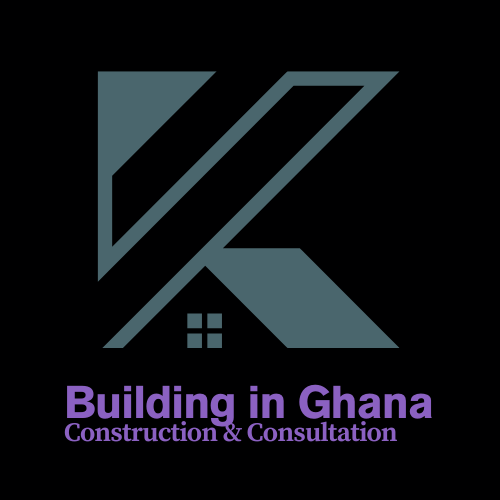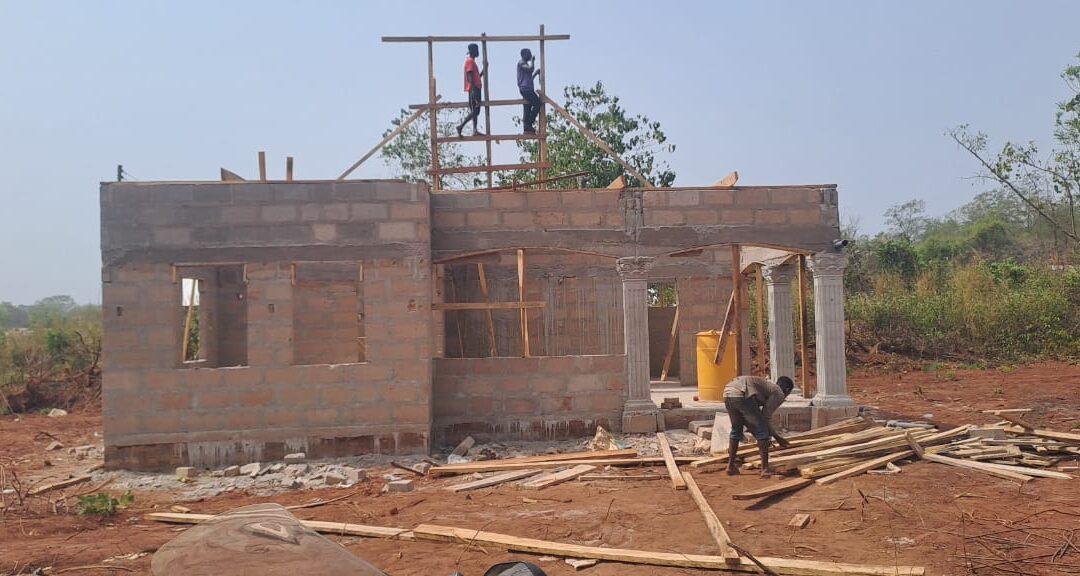The first step to start your project or to build your house in Ghana is to buy land. Maybe you have heard some horror stories before about buying a plot in Ghana. The sad truth is that a lot can go wrong and some of the stories you might have heard are true. In this blogpost I will explain the steps for buying your land in Ghana so that you can start your project trouble-free.
Choose your location
The first step is to choose your location. In order to do this there are a few things that you need to consider.
In which region would you like to build? Which type of project are you going to do, where would this be most successful? What is your budget, some regions are a lot more expensive. Not only considering the price of the plot, but also living and building expenses.
Looking for possible land to buy
Once you establish the preferred area it’s time to start looking. You can use an agent, but know that it’s hard to find a trustworthy agent. You can start asking around, but when you are not lucky you’ll meet the wrong people and you might end up buying land that has already been sold, or you end up paying a much higher price.
I would recommend going to the area yourself and stay there for a while. Don’t overshare about your plans, but study the environment. First of all to figure out if this is indeed the place in Ghana where you would want to buy land and build. Second of all so that you can find out what the average price of a plot is and who are selling. Is it the chief, this happens a lot in rural areas, or is it a private owner, or would you buy from the government.
For sure you will end up with somebody who is helping you. Ghanaians are known for their hospitality and when asked how much their help is worth the answer will probably be something like from your heart or that the person is happy to help. Keep in mind that this is ‘politeness’ , but the person most likely will expect something in return. Which is only logical, why would one work for free.
What to do when buying land in Ghana from a local chief
If you’re buying land from a local chief, it’s essential to follow the right steps to protect your investment. First, agree on the price and make the payment in front of trusted witnesses — ideally including a family member of the chief or another elder. Always request a site plan, a receipt for payment, and an allocation paper. These documents prove your claim and help you move forward with proper registration.
How to buy land from Ghana government
If you want to buy land directly from the government, the official channel is through the Lands Commission. They manage and allocate state lands across the country. You’ll need to visit their office to inquire about available plots, submit an application, and go through the formal process of evaluation, approval, and payment. Always make sure your documents come stamped and signed by the Commission to ensure the land is legally yours.
Steps to take when buying a plot from a private owner
When buying land from a private owner, start by agreeing on the price and making the payment in front of trusted witnesses. Ask the seller for the site plan, a receipt, and an allocation paper. It’s important that the seller also arranges for a transfer of property documents, officially moving the land from their name to yours. If the land was originally allocated by a chief, the seller should request a new allocation paper from that chief in your name.
If the land came from the government, not a chief, you’ll need to pay for the transfer and go together with the seller to the Lands Commission to update the ownership. At every step, make sure all documentation is clear, complete, and verifiable.
Registering Your Land in Ghana: Three Options Explained
Once you’ve received the allocation paper and site plan, it’s time to register your land to protect yourself from future disputes. There are three main ways to do this in Ghana: through cadastral registration, by obtaining a lease, or by securing an indenture in court. Below, I’ll explain each option, including how it works, what it costs, and when it’s recommended.
1. Cadastral Registration via the Lands Commission
This option means your land is officially registered with the Lands Commission under the national cadastral system. It’s not very expensive, and it gives you strong legal protection. In fact, it’s considered the second-highest level of documentation for land in Ghana — just below leasehold.
If any future dispute arises, having cadastral registration strengthens your position significantly. However, if you’re completely confident that there are no competing claims on your land (for example, if the land has been in your family for generations), this step might feel like an unnecessary extra.
Recommended when: You want to protect your land from potential claims without paying the full cost of a lease.
2. Lease via the Lands Commission
This is the most formal and most expensive option — and it’s usually required when buying land in urban areas or directly from the government. When you buy government land, it comes with a lease, not freehold ownership.
For Ghanaians, lease terms typically run for 99 years. For foreigners, it’s between 40 and 60 years, depending on the arrangement. Leases can usually be renewed when they expire.
If you buy a leased plot, you must go to the Lands Commission to transfer the lease into your name. While this route comes at a higher cost, it provides the highest level of legal security and is especially important in cities where land disputes are more common.
Recommended when: You’re buying land in a city or from the government — or if you’re a foreigner.
3. Indenture for Your Plot in Court
An indenture is a signed agreement between you, the chief, and the court. It serves as proof of ownership, and it shows that the court recognizes your agreement with the local authority. However, it is not the same as registering your land at the Lands Commission.
This makes it a kind of extra layer of protection — a legal acknowledgment without going through the full government registration process. It’s not very costly, and it’s a decent option if you’re sure that no one else could claim the land.
Recommended when: You’re buying land in a rural area and trust the local chief, but still want the court to recognize your rights.
How to find out if a plot is free to buy?
There is no official record in Ghana that states all the sold land. So be vigilant before buying. Ask around, since every plot is potentially for someone. Ask neighbors or farmers for example. They often know if someone has already bought the plot, even if it’s not yet developed. If the chief has sold it already it’s only the chief and the client who know.
Red Flags to Watch Out For:
- Different people claiming ownership or saying they’ve heard the plot was sold already.
- Hesitant or vague answers from neighbors when you ask about the land.
- Pressure to pay quickly, especially if you’re told the land is in high demand.
- The seller refuses to involve the chief or doesn’t want you to meet them.
- No clear documents or a site plan that seems reused or copied.
What happens when there is trouble?
When there is trouble, the lease protects your property because your ownership is officially registered with the government. With cadastral registration and indenture, the court will check the dates on the allocation forms to determine who has the rightful claim.
In some cases, if there is a dispute and it’s found that the chief sold the same land more than once, the court may summon the chief to explain and may require the chief to give you another plot of land as compensation.
How can I help you?
If you need guidance navigating these steps or want to ensure your land purchase is secure, I’m here to help. With expert knowledge of Ghana’s land system, I can assist you in verifying documents, dealing with chiefs and the Lands Commission, and protecting your investment every step of the way.
Contact me, Kwadwo Agyapong Emmanuel, today to get professional support and avoid costly mistakes when buying land in Ghana.

